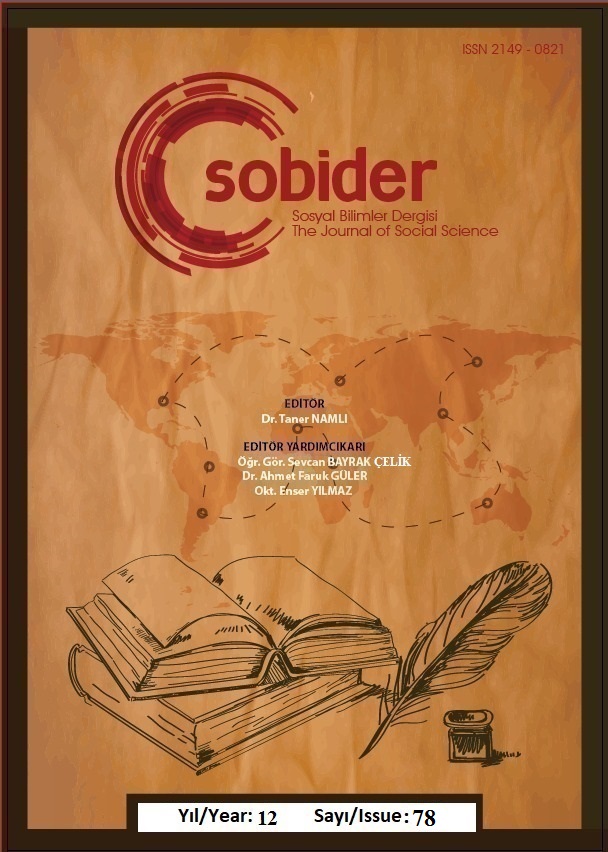Author :
Abstract
Bu çalışma, İmam Mâturîdî’nin, Kitâbü’t-Tevhîd adlı eserinde bilgi ve hikmet kavramlarına yaklaşımını incelemektedir. Maturidi, bilgiyi “eşyanın hakikati” (hakaiku’l eşya) olarak tanımlamaktadır. Ona göre bilgi; idrak, istidlal ve haberden oluşmaktadır. Hikmet ise “isabet” ve “her şeyi yerli yerine koymak”, “doğru ve isabetli olanı yapmak”tır. Bu, hem insan hem de Allah’ın fiillerinde “adalet” demektir. Allah herşeyi hikmetle yaratmıştır, onun varlıkları yaratması gelişigüzel değil, mükemmel bir planın parçasıdır. Mâturîdî’nin düşünce sisteminin merkezinde Allah’ın herşeyi hikmetle yaratmış olması vardır. Mâturîdî, hikmet konusunu üç başlık altında incelemiştir: Kainatın yaratılış hikmeti, emir ve yasakların hikmeti, zararlı şeylerin yaratılış hikmeti. Bunların hepsinde insanın merkezi bir konumda olduğu görülmektedir. Kainatın yaratılış hikmetini farklı açılardan değerlendirmiş olsa da çoğunlukla İnsan-Allah ilişkisi bağlamında ele almış, ubudiyete vurgu yapmıştır. Emir ve yasakların hikmetini de yine insan merkezli olarak değerlendirerek, emir ve yasakların arkasında insana fayda sağlayan hikmetler bulunduğunu zikretmiştir. Zararlı şeylerin yaratılış hikmetini açıklarken de yine insana vurgu yaparak onun dünya hayatındaki gelişimi için gerekli olduğu fikrini savunmuştur.
Keywords
Abstract
This study examines Imam al-Māturīdī’s approach to the concepts of knowledge (’ilm) and wisdom (hikmah) in Kitāb al-Tawḥīd (Kitābu’t-Tawḥīd). Māturīdī defines knowledge as “the reality of things.” (Ḥaqāʾiq al-ashyāʾ) According to him, knowledge consists of perception (idrāk), inference (istidlāl) and reliable report (khabar ṣādiq) while wisdom is “accuracy” and “putting everything in its place”, “doing what is right and accurate.” This means “justice” (ʿadl) in both human and divine actions. God created everything with wisdom; his creation of beings is not random but part of a perfect plan. At the center of Māturīdī’s thought system is the idea that God created everything with wisdom. Māturīdī examined the subject of wisdom under three headings: the wisdom of the creation of the universe (ḥikmat khalq al-kawn), the wisdom of commands and prohibitions (ḥikmat al-amr wa’n-nahy) and the wisdom of the creation of harmful things . (ḥikmat khalq al-ashyāʾ al-ḍārrah) . In all of these, humans are seen to occupy a central position. Although he evaluated the wisdom behind the creation of the universe from different perspectives, he mostly addressed it in the context of the relationship between humans and God, emphasizing servitude (ʿubūdiyyah). He also evaluated the wisdom behind commands and prohibitions from a human-centered perspective, mentioning that there is wisdom behind commands and prohibitions that benefits humans. When explaining the wisdom behind the creation of harmful things, he again emphasized humanity, defending the idea that they are necessary for human development in worldly life.





